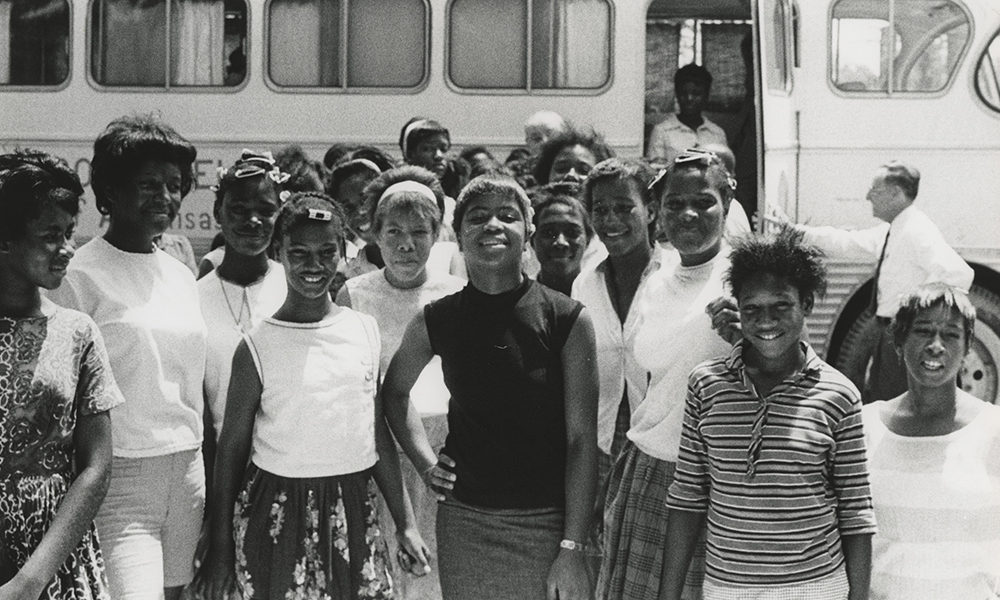Above: Winthrop Rockefeller meets with supporters during a campaign stop in 1966 as the Republican candidate for Governor of Arkansas. You can see the top of Winthrop’s head in the very back of the crowd.
When you are the one trying to forge a brand-new path through seemingly intractable land, it is inevitable that you will make missteps along the way. This is true even of someone like Winthrop Rockefeller. As successful as his methodology was for large-scale collaboration, and as much as we value bringing the Rockefeller Ethic to modern solutions, the process is not always a straightforward one. This is certainly brought to the forefront while reading through Cathy Kunzinger Urwin’s article “Noblesse Oblige and Practical Politics: Winthrop Rockefeller and the Civil Rights Movement”.
Read the article on JSTOR or via UCA archive pdf.
A look back at not only some of Winthrop’s family history of philanthropy and their beliefs, the article also looks at his efforts for equality in Arkansas. With hindsight and a modern perspective, seeing places where he failed or where it seemed he didn’t do enough is an easy task. His Governor’s Council on Human Resources didn’t have the effect he had hoped. Outside forces made his appointment of William “Sonny” Walker, Arkansas’s first Black department head, short-lived. Even his own supporters at the time criticized him for both doing too much and for doing too little.
What I appreciate about Winthrop is that in spite of the setbacks and the critique, he kept trying. While his view of how to help might differ from prominent theories on equality and equity now, at the time he was taking up an unpopular opinion in a new home state because he felt in his heart it was the right thing to do. And against all odds he made headway. While he stopped short of mandating others to hire diversely, he did so himself, both at his cattle ranch and in his governmental appointments. Integrating the draft boards and the state police was a major and lasting change in representation for Arkansas.
As Urwin concludes, there were lots of people active during Winthrop’s time, pushing for civil rights day and night. What makes him stand out isn’t his great strides, or his failures. It was his role as a major political figure in Arkansas who did his best to listen and help. Despite the pressure placed on him for going against popular opinion at the time and for voices saying he could’ve done more, he moved forward as best he could. He could have done nothing and would’ve remained a historic Arkansas figure, but he did his best to right what he saw was wrong. While he didn’t clear the whole path, he certainly moved us much farther forward.


